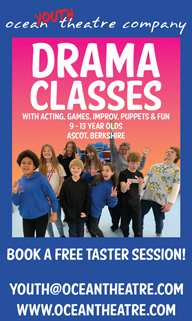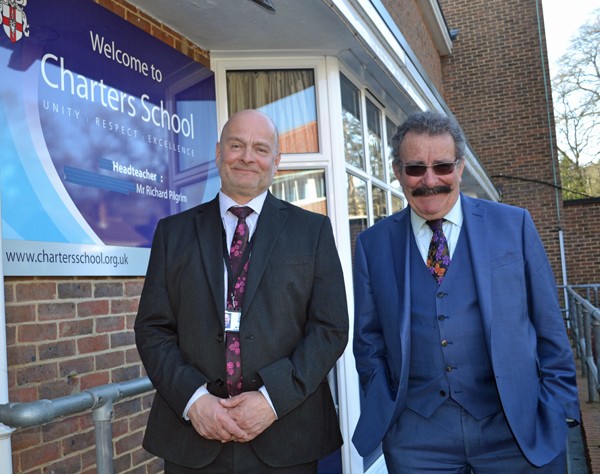On Tuesday 26th February, Professor Lord Robert Winston returned to Charters School in Sunningdale to deliver our inaugural lecture in the newly refurbished Lecture Theatre, courtesy of a grant from the Wolfson Foundation.
Lord Winston’s lecture was entitled ‘Can Science Make You Happy?’ and was attended by 55 of the school’s Year 10 students.
He began by showing MRI images of the brain after patients had been told jokes or eaten chocolate, explaining that these activities register in the reward centre in the brain and showed how research suggested happiness drops around the age of 30 but gradually increases from 50 onwards.
He explained the difference between happiness and pleasure and that there was a link between the happiness of young children and the anxiety experienced by their mothers during pregnancy. He also explained the value of research, as it has been found that a child’s happiness can be increased through positive interactions and environments. Lord Winston said that the key to happiness was ‘finding people you like working with and the right environment’.
As the lecture drew to a close, Sandro Shargorodsky asked what originally made Professor Lord Winston want to explore embryo research. He replied that it was an area of science which interested him and had previously been little researched. He said that ‘if you go into an area with little competition, you can actually do rather well.’ He also said that ‘ambition should be tempered with what we enjoy doing.’
Mr Richard Pilgrim, Headteacher at Charters School said, ‘It was a pleasure spending time with Professor Winston and hearing about the science behind happiness. It seems that we can’t change our genes but we can change our environment. We are proud of the opportunities and support we put in place for our students and feel that by creating a happy environment we can help our students thrive’.
Professor Winston said ‘I feel it is vitally important to visit schools to promote the vast range of opportunities within STEM subjects at A Level and beyond. The key thing is for schools and universities to become much closer as it is so important that we nurture the next generation.’












